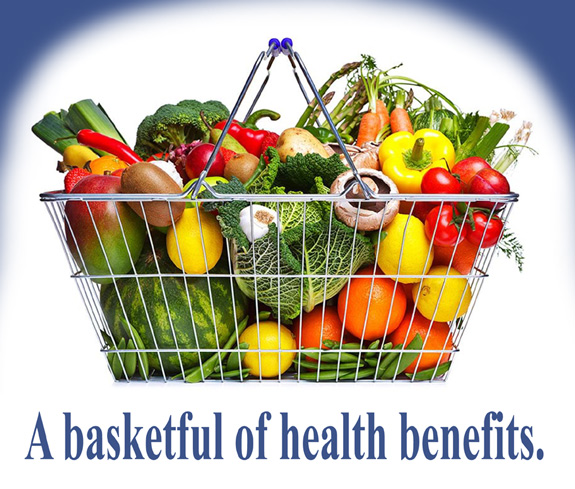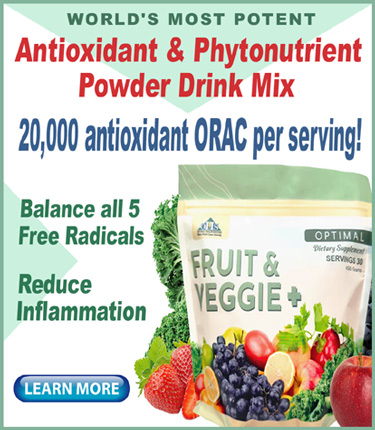Many diseases that used to be considered diseases of the elderly are now affecting younger people at alarming rates. One of these diseases is colon cancer.
The rate of colon cancer—also known as colorectal cancer and bowel cancer—has doubled in people under 55 during the past thirty years. Currently, about 20% of diagnosed colon cancers occur in people aged 54 and younger.
Fortunately research shows a path to lowering rates of this disease. It’s the same path that lowers rates for all cancers: Better dietary habits, including higher consumption of fruit and vegetables.
Of all the nutrients provided by fruit and vegetables, the twin defense mechanism of fiber and phytonutrients is the most potent.
A pair of related studies published in 2024 are reinforcing this fact.
First study
According to researchers in one study, based at Flinders University in Adelaide, South Australia, people who ate the most fiber and unsaturated fatty acids had a 15% lower risk of colon cancer.
The conclusions were drawn by reviewing data from a large randomized controlled study known as the Prostate, Lung, Colorectal, and Ovarian Cancer Screening Trial (PLCO).
The PLCO was designed by the National Cancer Institute in the United States decades ago—in 1993.
Briefly, the trial included 155,000 participants who were enlisted at 10 screening centers across the U.S., and who had randomly been assigned to either an intervention group or control group.
The trial included both lab testing and take-home questionnaires to track dietary intake. Intake of fiber, and folate, as well as the percentage of energy from carbohydrates, saturated and unsaturated fatty acids, were all tracked as variables.
Important findings
“We’ve identified many direct links between poor diet choices and digestive cancers,” said senior researcher Yohannes Melaku, a nutritional epidemiologist with the Flinders Health and Medical Research Institute. “Importantly, we found that a diet high in healthy fats and vegetables whilst limiting the consumption of sugars and alcohol could potentially reduce the risk of bowel and other cancers.”
One critical aspect to the trial was observing how fiber from fruits and vegetables promoted a healthy gut microbiome—an import defense against disease.
“Notably, we found that high-fiber foods such as fruits and vegetables promote healthy gut bacteria that can reduce inflammation,” Melaku said. “The emphasis on fiber and healthy fats should be an integral part of everyone’s diet.”
The study was published in the European Journal of Nutrition in November 2024.
Related study
An earlier related study, conducted by the same researchers, found a 14% increased risk of colon cancer was associated with an unhealthy dietary pattern of more red and processed meat, alcohol, refined carbs and sugary drinks.
This meta-analysis also reported a 17% reduced risk of colon cancer associated with a higher intake of fruits, whole grains, legumes, vegetables, milk and other dairy products.
The study was published in Nutrition Reviews in July 2024.
While both studies examined existing evidence in depth, the researchers emphasized they would like to see more hands-on clinical trials “to fully investigate the impact that diet can have on colon cancer.”
– – –
Sources: European Journal of Nutrition, Nutrition Reviews.


